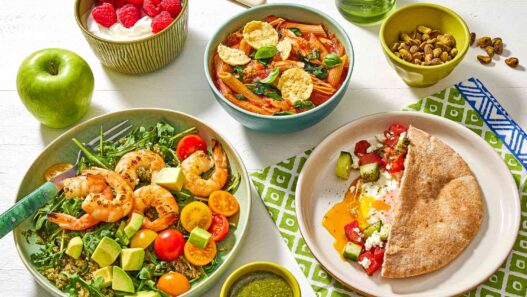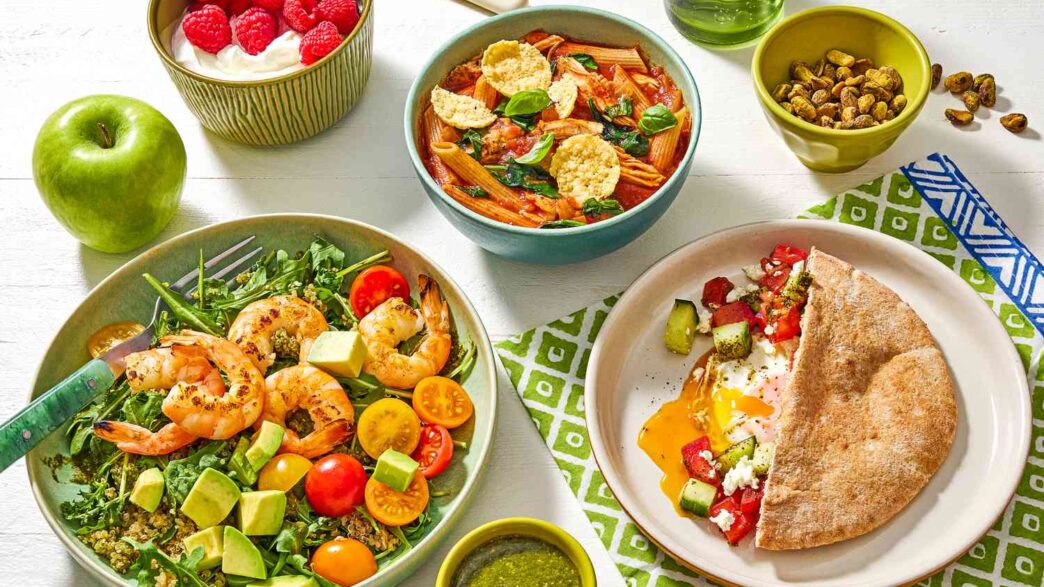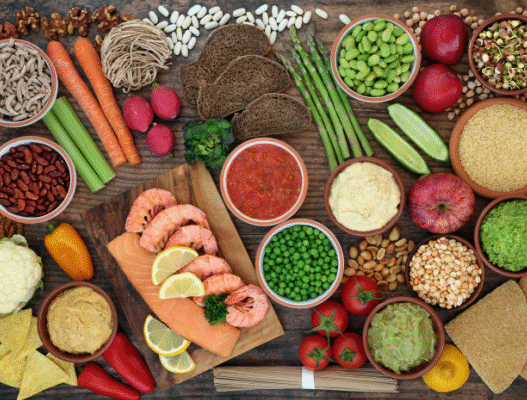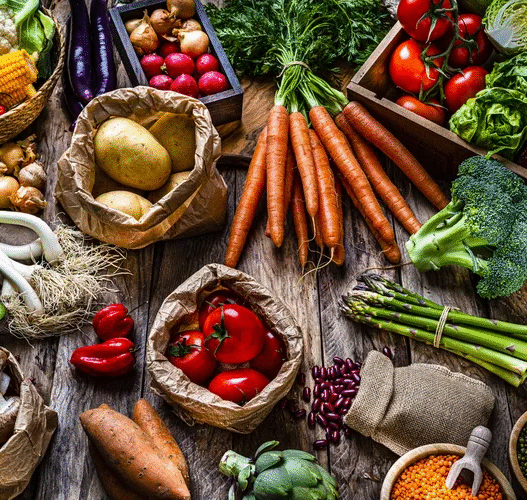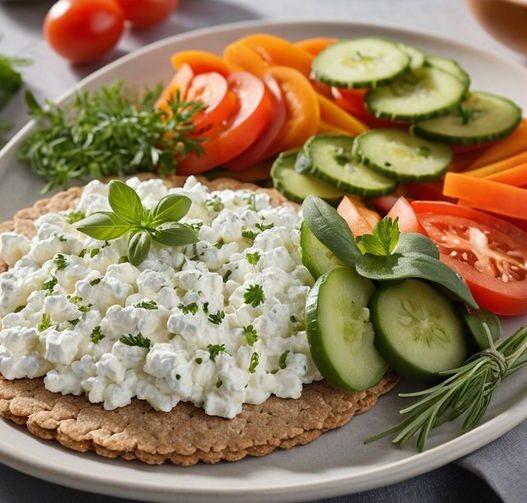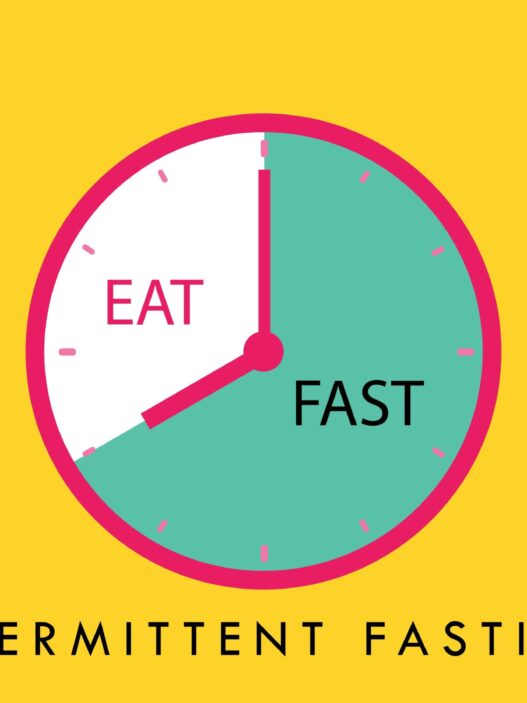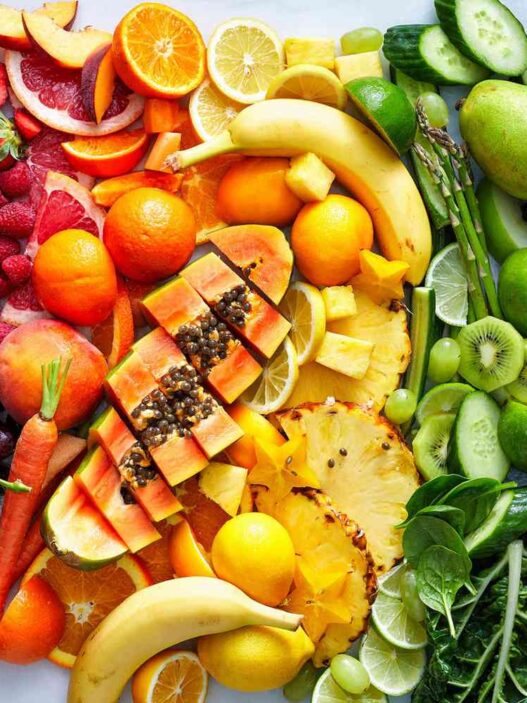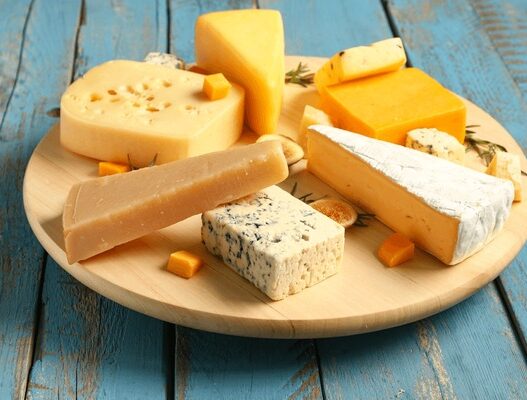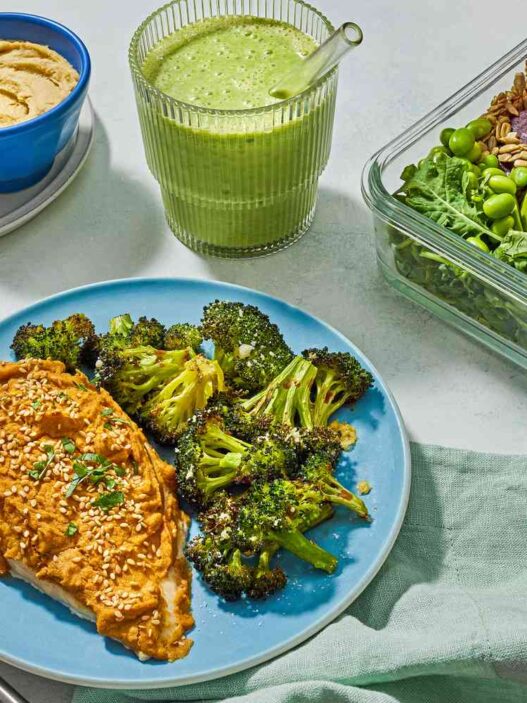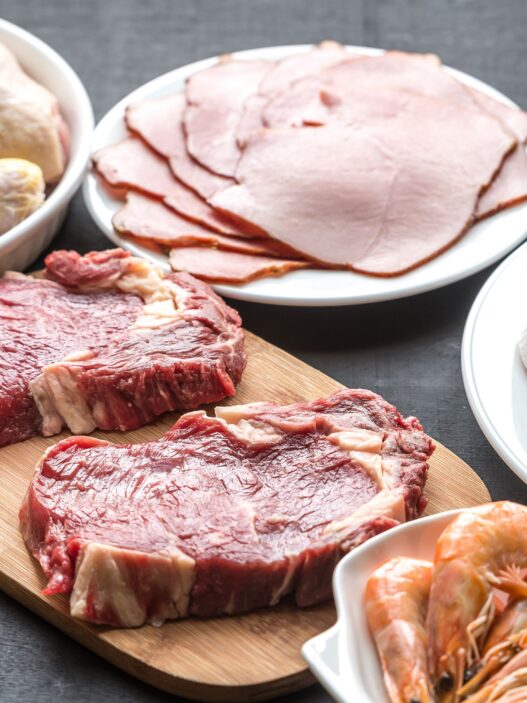The Mediterranean diet is both pleasant and good for you because it is full of fruits, vegetables, whole grains, and healthy fats. It might help you keep your weight in check, keep your heart healthy, and stop diabetes. Let’s dig in about Mediterranean diet for weight loss.
What Is The Mediterranean Diet For Weight Loss?
The Mediterranean Diet is a way of eating that focuses on healthy fats and plant-based meals. It doesn’t focus on tight restrictions or calculating calories; instead, it focuses on making good dietary choices and keeping everything in balance.
The diet usually includes:
- A lot of nuts, beans, lentils, fruits, and veggies
- Many whole grains options, such as brown rice and whole-wheat bread
- Try using only extra virgin olive oil (EVOO) for healthy fats.
- Eating fish often, especially those high in omega-3s
- Natural cheese and yogurt in small amounts
- Little or no red meat; instead, eat chicken, fish, or plant-based proteins.
- Not much sugar, sweets, or butter
- If you don’t currently drink wine, don’t start. You can have a little with meals.
This way of eating is similar to how certain people in the Mediterranean ate in the middle of the 20th century. Studies have shown that it lowers the risk of coronary artery disease (CAD), and it is now widely suggested to help with heart health and overall health.
A licensed dietitian can help you make the Mediterranean Diet work for you by taking into account your specific health needs, diseases, allergies, and food choices.
Mediterranean Diet Benefits
The Mediterranean Diet is good for your health because it:
- Limits trans and saturated fats. Your body requires some saturated fat, but too much of it can elevate LDL (bad) cholesterol, which makes it more likely that plaque will build up in your arteries (atherosclerosis). Trans fats have no health benefits, and they can cause inflammation too.
- Encourages good unsaturated fats, such as omega-3s. These fats help keep cholesterol levels healthy, enhance brain function, and lower inflammation. Eating a lot of unsaturated fats and not a lot of saturated fats also helps keep blood sugar levels constant.
- Keeps the amount of salt low. Eating foods high in salt can raise you blood pressure, which can result in more heart attacks and strokes.
- Lessens the amount of processed carbs and added sugars. These foods might raise blood sugar levels and give you more calories without much nutritious value. A lot of the time, they don’t have enough fiber and other important nutrients.
- Focuses on foods high in fiber and antioxidants. These types of nutrients help keep blood sugar levels stable, reduce inflammation, and support healthy digestion. Antioxidants also assist guard against cancer by getting rid of free radicals that are bad for you.
Things To Eat In Mediterranean Diet
Because the Mediterranean diet is different in each country, it might be hard to say exactly what foods it includes.
This diet, in general:
- Focuses on nutritious foods that come from plants
- Reduces the meat and other animal products consumption
- Includes fish and shellfish at least two times a week
- You can use fresh, frozen, dried, or canned fruits and vegetables. Just make sure to check the labels for extra sugars or sodium.
Foods that are important to include:
- Vegetables: tomatoes, broccoli, kale, spinach, onions, cauliflower, carrots, Brussels sprouts, cucumbers, potatoes, sweet potatoes, and turnips
- Fruits: peaches, melons, figs, dates, grapes, strawberries, oranges, apples, and bananas
- Almonds, walnuts, macadamia nuts, cashews, sunflower and pumpkin seeds, almond and peanut butter are some examples of nuts, seeds, and butters.
- Sea salt, pepper, turmeric, cinnamon, cayenne, oregano, garlic, basil, mint, rosemary, sage, and nutmeg are all herbs, spices, and condiments.
- Legumes include beans, peas, lentils, chickpeas, peanuts, and pulses.
- Whole grains include oats, brown rice, rye, barley, corn, buckwheat, whole wheat bread, and pasta.
- Fish and shellfish include salmon, sardines, trout, tuna, mackerel, shrimp, oysters, clams, crab, and mussels.
- Chicken, turkey, and duck are all types of poultry.
- Eggs: from ducks, chickens, and quails
- Dairy: milk, cheese, and yogurt
- Extra virgin olive oil, olives, avocados, and avocado oil are all good fats.
Things To Avoid In Mediterranean Diet
- Added sugar: present in table sugar, baked products, ice cream, candy, soda, and syrups
- White bread, pasta, tortillas, crackers, and chips are all refined grains.
- Trans fats are likely found in fried foods, margarine, and many other processed foods, so avoid these food options
- Sausages, deli meats, hot dogs, and beef jerky are all processed meats.
- Highly processed foods include fast food, microwave popcorn, granola bars, and convenience dinners.
Drinks That Are Good For You
- Water
- Coffee and tea (with little cream and sugar)
- Juices made from fresh fruit with no added sugar
- Red wine with meals, small to moderate amounts (optional)
Drinks That Are Not Good For You
- Alcohol and beer
- Soda and other drinks with sugar in them
- Juices made from fruit with added sugar
Conclusion
Mediterranean diet is very beneficial for your overall health, such as enhanced brain and heart function, better blood sugar control, and a gut microbiota that is more diversified and balanced.
This plant-based method of eating is based on the Mediterranean region, but it can be adapted to fit many different types of food and preferences. Mediterranean diet for weight loss is a good place to start if you want to reduce weight or just get healthier effectively.






